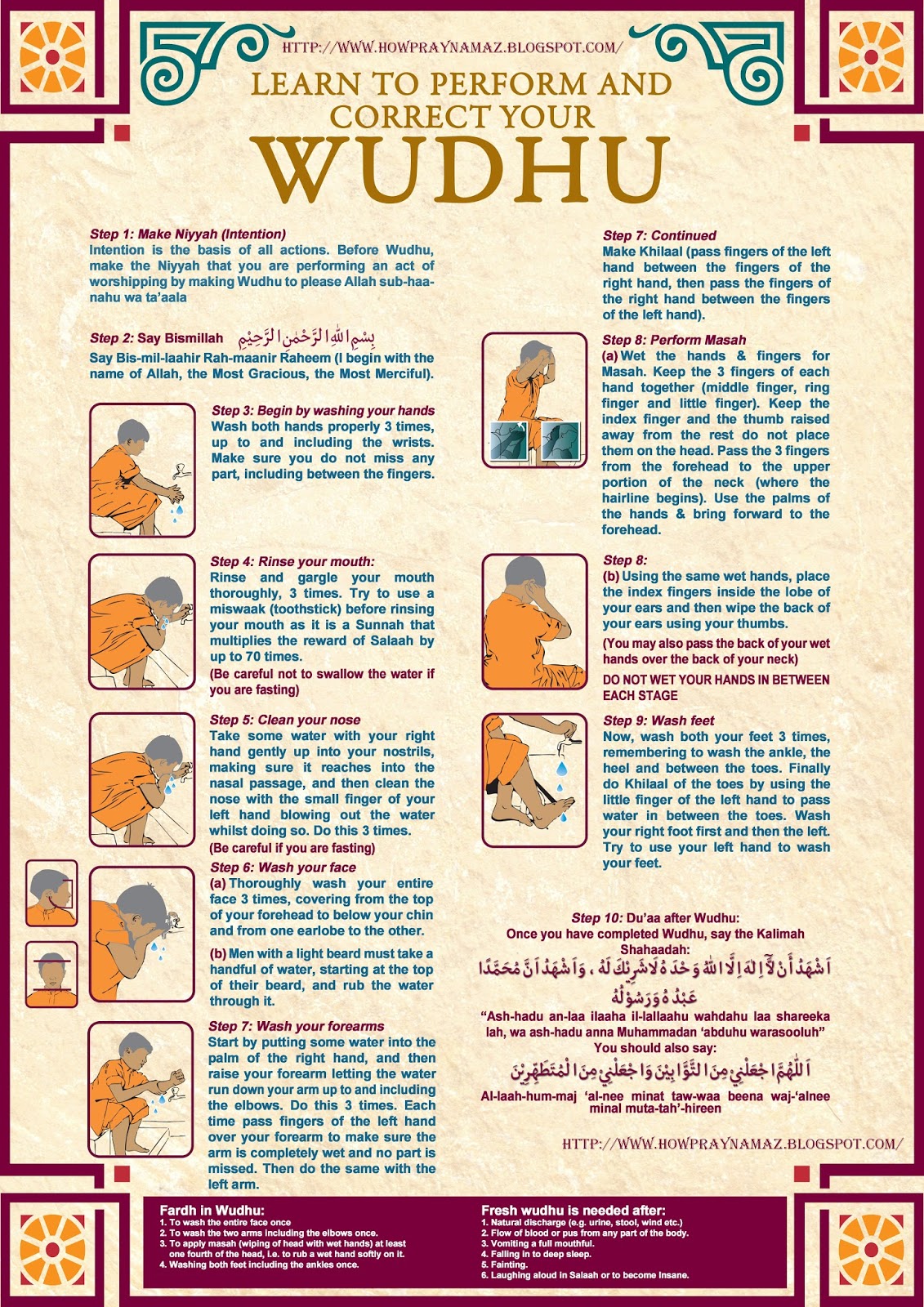Wudu is a fundamental practice in Islam, serving as a ritual purification before performing prayers. Understanding how to perform wudu correctly is essential for every Muslim, as it ensures that one is in a state of cleanliness and readiness to engage in worship. In this comprehensive guide, we will walk you through the steps of performing wudu, the significance behind each action, and provide tips for maintaining this important practice.
In this article, we will delve into the details of wudu, including its benefits and the proper techniques to ensure that it is performed correctly. Whether you are new to the faith or looking to refresh your knowledge, this guide is designed to be informative and accessible. We will also address common questions and misconceptions about wudu, ensuring that you are well-equipped to perform this important ritual.
By the end of this article, you will have a thorough understanding of how to perform wudu, along with practical tips to incorporate this practice into your daily routine. Let’s embark on this journey to spiritual cleanliness together!
Table of Contents
- What is Wudu?
- The Importance of Wudu in Islam
- Steps to Perform Wudu
- Common Mistakes in Performing Wudu
- Benefits of Performing Wudu
- Frequently Asked Questions
- Conclusion
- Call to Action
What is Wudu?
Wudu, often referred to as ablution, is a ceremonial washing performed by Muslims before prayers (Salah) and certain other acts of worship. The act symbolizes spiritual purification, as well as physical cleanliness. Wudu involves washing specific body parts in a prescribed order, reflecting the importance of hygiene in Islam.
Wudu in the Qur'an and Hadith
The practice of wudu is deeply rooted in Islamic teachings. The Qur'an mentions the necessity of purification in several verses, emphasizing the importance of cleanliness. Additionally, the Hadith provides guidance from the Prophet Muhammad (peace be upon him) on how to perform wudu, making it a well-defined ritual.
The Importance of Wudu in Islam
Performing wudu is not merely a physical act; it holds spiritual significance for Muslims. Here are some reasons why wudu is important:
- Spiritual Cleanliness: Wudu serves as a means of purifying oneself before engaging in prayers.
- Preparation for Prayer: It helps to mentally and physically prepare an individual for worship.
- Symbol of Faith: Wudu represents a Muslim's commitment to cleanliness and devotion to Allah.
Steps to Perform Wudu
Now that we understand the significance of wudu, let’s go through the precise steps to perform it correctly:
- Intention (Niyyah): Begin with the intention to perform wudu for the purpose of prayer.
- Say Bismillah: Recite "Bismillah" (In the name of Allah) before starting the wudu.
- Wash Hands: Wash both hands up to the wrists three times, ensuring that water reaches between the fingers.
- Rinse Mouth: Take a handful of water and rinse your mouth three times.
- Sniff Water: Take water into your nostrils and blow it out three times.
- Wash Face: Wash your face three times, from the hairline to the chin and from ear to ear.
- Wash Arms: Wash your arms from the elbows to the fingertips, three times for each arm.
- Wipe Head: Wipe your head once with wet hands, moving from the front to the back.
- Wipe Ears: Wipe the inside and outside of both ears once.
- Wash Feet: Wash both feet up to the ankles three times, ensuring water reaches between the toes.
Tips for Performing Wudu
Here are a few tips to ensure that your wudu is performed correctly:
- Use clean water for wudu, as it is essential for purification.
- Avoid wasting water; be mindful of the amount you use.
- Perform wudu in a clean and quiet place to maintain focus.
Common Mistakes in Performing Wudu
It’s important to be aware of common mistakes to avoid invalidating your wudu. Here are some frequent errors:
- Not washing each part the required number of times.
- Forgetting to say "Bismillah" before starting the wudu.
- Rushing through the steps without ensuring cleanliness.
Benefits of Performing Wudu
Performing wudu offers numerous benefits that extend beyond physical cleanliness:
- Enhanced Focus: Wudu helps clear the mind, allowing for a more focused prayer.
- Spiritual Refreshment: It rejuvenates the spirit and prepares one for worship.
- Physical Health: Regular washing promotes hygiene and can prevent the spread of germs.
Frequently Asked Questions
Here are some commonly asked questions about wudu:
- Can I perform wudu in a rush? It is recommended to perform wudu with calmness and focus, even if you are short on time.
- What invalidates wudu? Actions such as using the restroom, sleeping, or losing consciousness can invalidate your wudu.
- Do I need to perform wudu every time before prayer? Yes, wudu should be performed before each prayer unless it has not been invalidated.
Conclusion
In conclusion, understanding how to perform wudu is crucial for every Muslim as it prepares us for prayer and symbolizes our commitment to cleanliness and spirituality. By following the steps outlined in this guide, you can ensure that your wudu is performed correctly and meaningfully.
Call to Action
If you found this article helpful, please leave a comment below and share your thoughts! We encourage you to explore our other articles on Islamic practices to deepen your understanding and enhance your spiritual journey.
Thank you for reading, and we look forward to seeing you again on our site for more insightful content!


